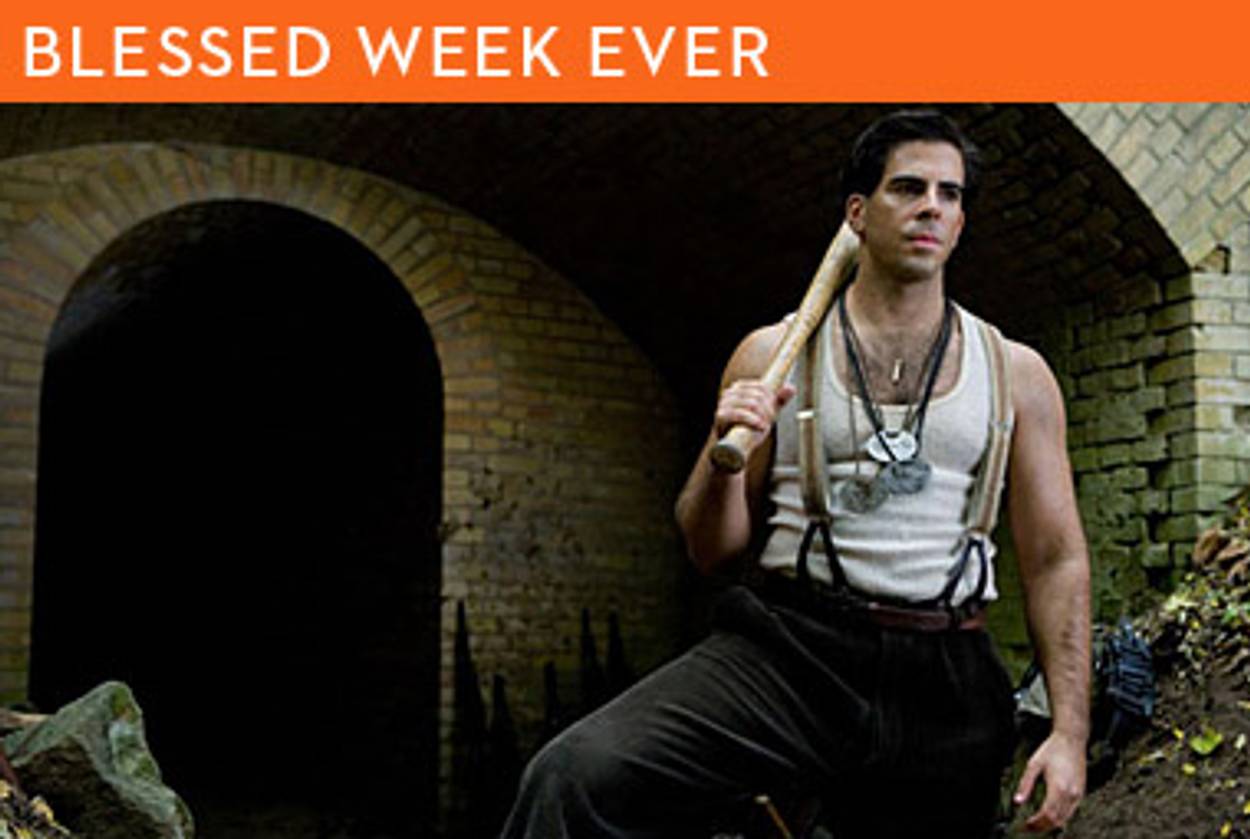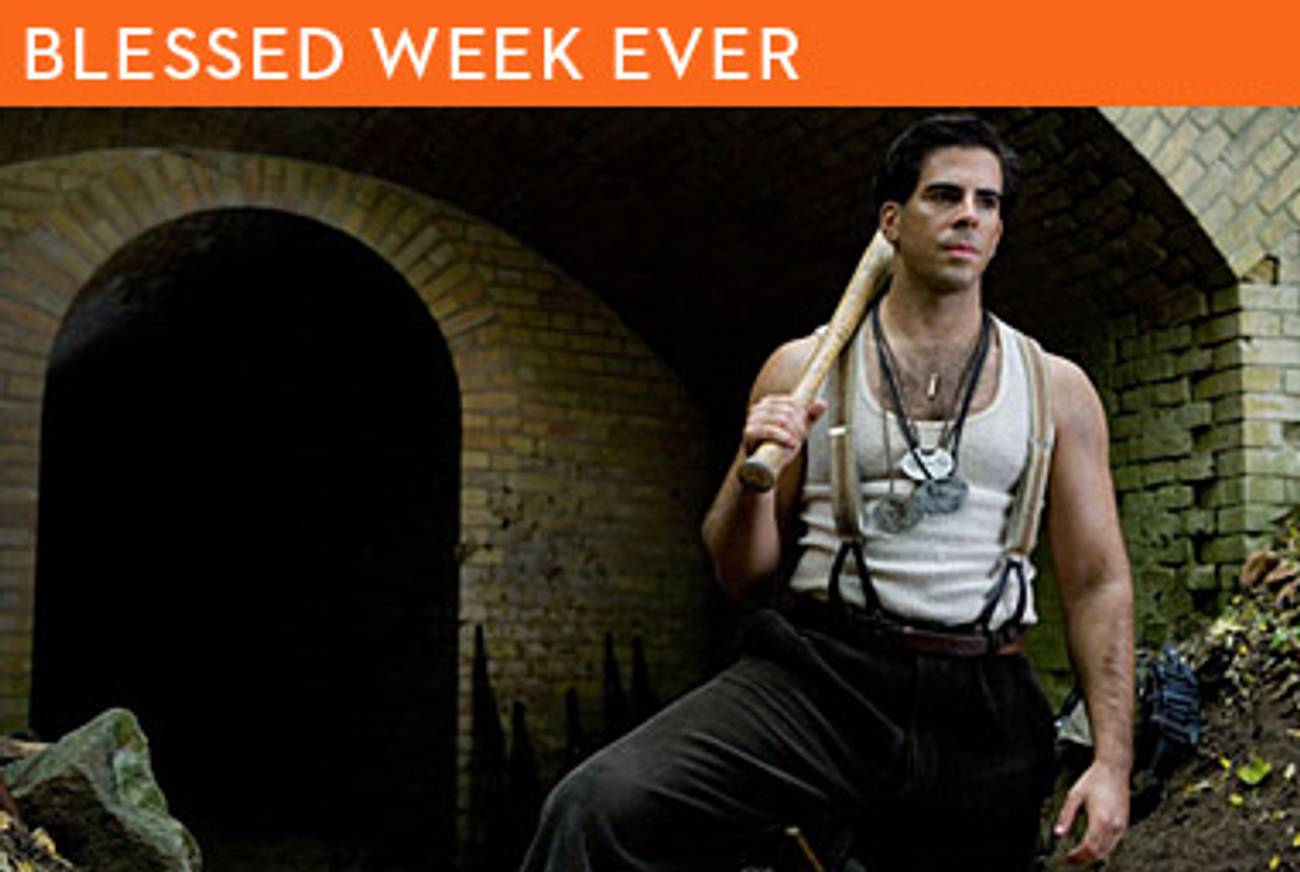Slay Ride
A haftorah of monarchy and madness




The new year is upon us, which means that, once again, ’tis time for resolutions, these delightful little rituals in which we, awash with unfailing optimism and a searing faith in man’s power to overcome the hurdles of heredity and circumstance, solemnly swear to eradicate our flaws and reemerge, come January first, as greatly improved versions of ourselves. This year, we tell ourselves, we will wake up early each day and work out. We’ll read that weighty, forlorn, classic novel, the one we bought with the best intentions six years ago and have been meaning to crack open ever since. We’ll be kinder to our families. This year, we tell ourselves, this year we’ll shine.
Not me.
Belonging to that class of people that was once kindly called curmudgeonly but for which common usage has since coined far more pungent adjectives, I realized long ago that resolutions were a colossal waste of my time. No single spark of goodwill could ever tame my surging waistline, soothe my familial discords—the Leibovitz clan is made of such stuff as would have Hamlet chuckle in relief, thrilled with his lot in life and flushed with warm feelings for his dear uncle—or rid me of any other sin or sordid imperfection.
Instead, I’d rather commit this day of reflection to finding fault with other people: people who say “take it easy,” for example, people who walk around with old ski lift passes still attached to their jackets, bloggers and twitterers and anyone else infused with insolence but free of introspection. Since year-end lists, however, are expected to be both concrete and concise, I’ll choose just one exemplar, one single embodiment of humanity’s slow and strange descent into the oblivion of idiotic bliss: congratulations to you, Quentin Tarantino.
Since I’ve already expressed my opinion of the celebrated director’s latest effort, Inglourious Basterds, a film as stupid and sophomoric as its intentionally misspelled title suggests, I’ll present as evidence the following nugget from the master himself, uttered in a recent interview with Jordana Horn:
“So now, in Israel, I’m watching the film, and we get into the theater sequence,” said Tarantino. “And literally, not when Hitler gets killed, but when you hear Shoshanna’s voice say, ‘This is the face of Jewish vengeance,’ the whole theater just erupted in applause. I think there were two guys that started it, but everyone jumped in. And you know something? It was violent. It was scary. There was violence in that cheer. It wasn’t like cheering Indiana Jones. There was something bloodcurdling about it. I don’t want to overstate it, but there was an edge to it. There was violence in it … there was blood in the air, which was wild. It was a wild thing to experience. It was a great experience, and it was real.”
Anyone who had seen Tarantino’s orgiastic opuses of severed limbs and tortured bodies should hardly be surprised to hear him describe, with signature thoughtlessness, interacting with a violent and unruly audience as a great experience; presumably, at no point in Tarantino’s meditations on Nazi Germany had it occurred to him that violent and unruly audiences might have had something to do with the rise of the Third Reich. Still, his enthusiasm for revenge, evident both on the screen and off it, requires a longer pause. To understand the true nature of vengeance, we’ll need a guide far more competent than a former video store clerk.
We’re in luck. Read together, this week’s parasha and haftorah provide us with a profound meditation on the true nature of fury and forgiveness. As is befitting a week in which one year ends and another begins, both texts record the last words of dying men to the sons about to succeed them.
In the parasha, Jacob, on his deathbed, summons his brood, blessing each son and assigning a specific role to his clan—the descendants of Judah will be kings, while Zebulun’s heirs will sail the seas and Asher’s seed will grow great olives. Some children—Reuben, Shimon, Levi—are censured for their past sins; still, all are blessed.
Not so the case with David, the hero of this week’s haftorah. As he lies dying, the king, still grieving for the death of his rebellious son Absalom (Absalom!), blesses his other son, Solomon. There are a few pleasantries regarding keeping the laws of the Lord, but the fading monarch soon gets down to business, dictating a detailed list of political foes to slay and supporters to reward.
What a difference a crown makes. Jacob, the last of the patriarchs, was able to overcome his rage, and offer his kindness even to his most devious descendants. He never forgot, but he knew how to forgive. Not so the second king of Israel: even in his last moments, David was still gripped by the cruel calculations of politics and power.
Whereas Jacob was subtle enough to leave his children on a note of reproach and remembrance, condemnation and celebration, affliction and affection alike, all David could muster is a hit list. Perhaps it’s only natural: unlike a father, a king can’t speak the subtle language of nuance.
Neither, it turns out, can most Hollywood directors. Like the ancient kings of the Bible, most contemporary filmmakers hold a staunchly Manichean worldview, and pay their scribes to compose simple stories of good triumphing over evil, preferably with much violence. This New Year’s Day, then, as we make ourselves a long list of solemn promises, let us add one more: this year, let us be more Jacob than David, and reject simple fantasies of bloody vengeance in favor of a deeper, subtler, and more compassionate understanding of mankind and its motives. It won’t make 2010 any less complicated, but it might make it more peaceful.
Liel Leibovitz is a senior writer for Tablet Magazine and a host of the Unorthodox podcast.
Liel Leibovitz is editor-at-large for Tablet Magazine and a host of its weekly culture podcast Unorthodox and daily Talmud podcast Take One. He is the editor of Zionism: The Tablet Guide.